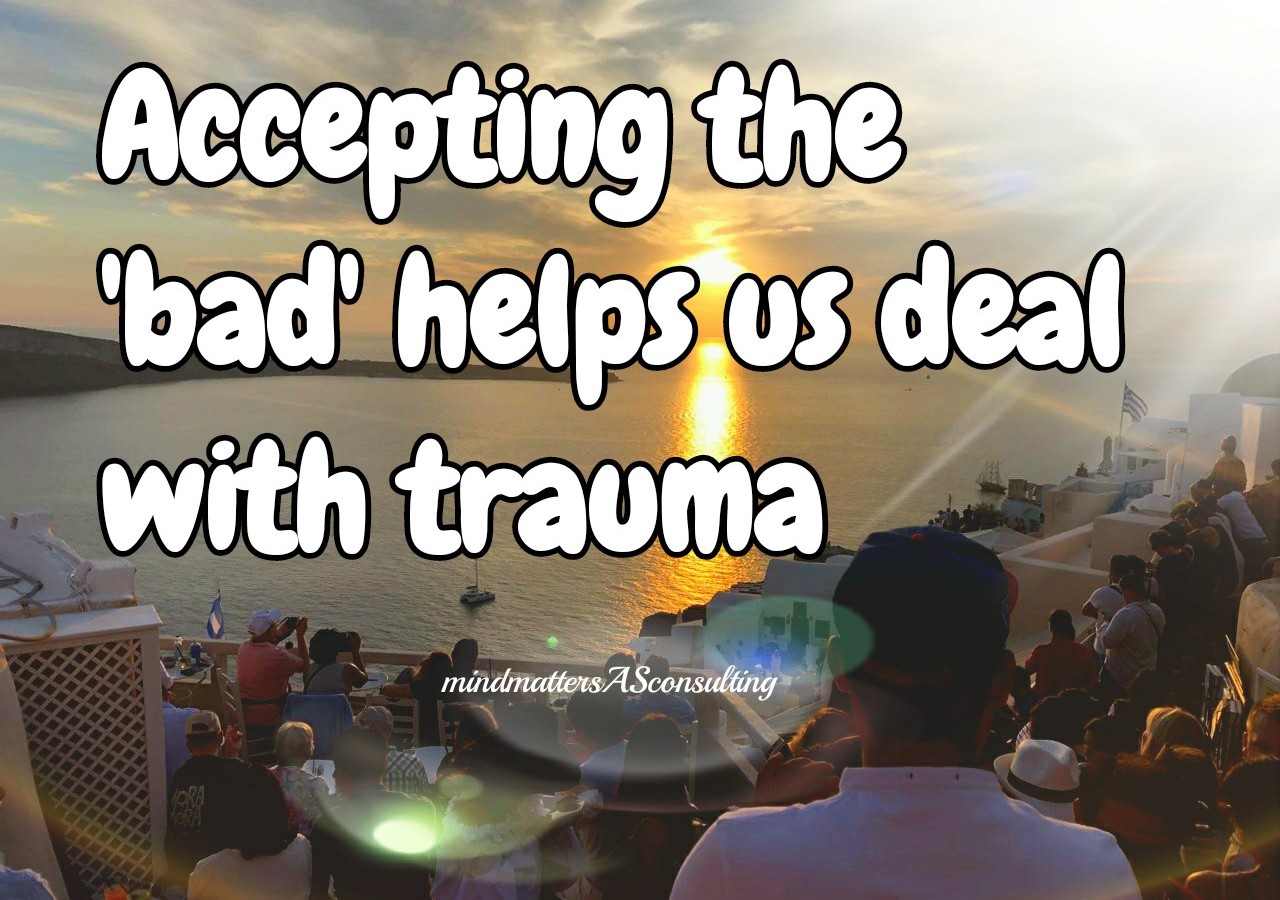From early childhood, my mother taught me that things in our lives happen for a reason, and it’s up to us to find these reasons. In hindsight, I realize that my mother was “preparing” me to face whatever life has to offer, especially the “bad” – stoically. In other words, acceptance of the “bad” as a life event helps us to grow out of a traumatic experience.
Living through a pandemic makes these words more relevant as the only options available are either to be bogged down with pandemic-induced losses or to forge ahead.
Degrees of Acceptance
We all have our ways of dealing with the trauma to help us feel better.
Many of us bear with the loss and make efforts to go on with our lives. Keeping to our daily routine prevents us from brooding. Some may start a new life by making lifestyle changes. They may adopt a new hobby or start a support group so as to get too busy to have time to think and relive the trauma.
At times, we may give up and even attempt suicide. We feel sorry for ourselves and keep questioning our terrible fate. But do we give up? Or is “giving up” another survival technique? It can be a call for help, as the person may not know how to ask for help.
We tend to float between these categories. that doesn’t mean we cannot handle life’s vicissitudes. It merely implies that we may accept trauma with the right support as “one of those things” we have to work on to lead a more fulfilling life.
The “Boo” Effect
The first step is to know why trauma affects us so deeply that it takes over our lives. I find trauma creates the “Boo” ripple effect: a conditioned or learned response to a previously neutral stimulus.
As children, we carry the conditioned Boo monitors and ghosts. As adults, we have the same conditioned Boo response when we face a traumatic event.
Our survival “fight, flight or freeze’ response mechanism kicks in. It may leave behind mental-health problems such as recurrent nightmares, intrusive thoughts, memories, or feelings of hopelessness.
Learned behavior
Avoiding the situation or emotions connected to the traumatic experience helps the person cope with the stress. But, how do we know the coping skills we are using are not suitable for us? It is when the avoidance behaviour generalizes to other similar situations or events. A person may stop going to the grocery store as they had accidentally seen something related to the trauma.
Interventions
At times, the individual’s intrusive thoughts and memories cause intense emotional distress leading to avoidance behaviours.
We want a quick fix solution to our problems to return to our routine or premorbid functioning as soon as possible. Interventions are needed early before the anxiety and fear escalate to avoidance behaviours.
Trauma readiness comes with optimum mental and physical health. Practising Mindfulness every day helps us learn to relax while accepting our “busy” thoughts.
Going along with the flow
We are going to make mistakes while learning new skills to rejuvenate after a trauma. These mistakes are part of Trial and Error learning, according to psychologist Edward Thorndike. Learning takes place while trying various strategies to have a calm mind, for example.
To expedite this learning process, psychologist B. F. Skinner used rewards to encourage appropriate responses ( positive reinforcement). So we can create a hierarchy of proper responses to reach our goal. Gradually, behaviour that is continuously rewarded will become the dominant behaviour.
Accepting a traumatic experience will be an ongoing process. A chain reaction of rewarding positive behaviours will eventually lead to a fulfilling and rewarding life after a trauma.
This article was published in the Telegraph-Journal.
The picture is from Mind Matters A.S. Consulting. https://www.facebook.com/mindmattersasconsulting/.
Disclaimer: This article is for informational purposes and should not substitute for psychotherapy with a qualified professional.


